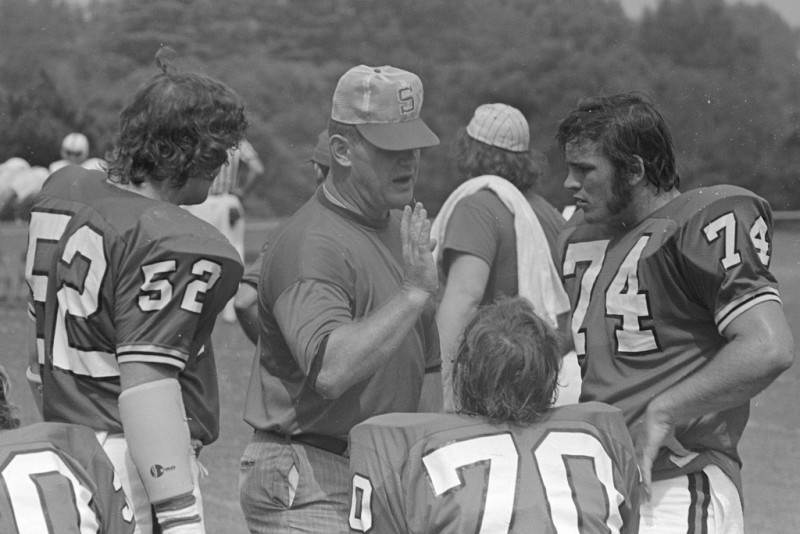5 Things I Wish I Had Known about Small Group Coaches
 I led my first small group in 1983 and was coaching my first network of small group leaders in 1984. Over the last 30 years I’ve tried just about every system and experimented with so many different ideas I’ve actually been called a “mad scientist.”
I led my first small group in 1983 and was coaching my first network of small group leaders in 1984. Over the last 30 years I’ve tried just about every system and experimented with so many different ideas I’ve actually been called a “mad scientist.”
And while I’m glad I’ve had the experience, there are definitely many things I wish I had known about small group ministry.
5 things I wish I’d known about small group coaches
1. Coaching has nothing to do with keeping score or accounting.
When the primary function of a coach is to check on small group leaders, find out how many people are attending or whether the leader has an apprentice, your coaching structure has already failed. Coaching is about care, not keeping score or accounting.
When the primary function of a coach is to check on small group leaders, find out how many people are attending or whether the leader has an apprentice, your coaching structure has already failed. Share on X
See also, FAQ: What Does a Coach Need to Know from a Small Group Leader?
2. Coaching is only about technique in the very beginning.
The notion that a coach exists to coach small group leaders on how to lead their group is one of the most common reasons that coaching is rarely effective. Sure, new small group leaders often need some basic skill training when they first begin. But, and this is so important, most small group leaders learn what they need to know how to do in the first 90 days or so...or their group dies.
Most small group leaders learn what they need to know how to do in the first 90 days or so...or their group dies. Share on X
See also, Coaching FAQ: How Much of Coaching Is about Technique.
3. The primary role of a coach is to do to and for whatever you want leaders to do to and for their members.
This is a huge learning! Coaching has much more to do with mentoring. Remember, whatever you want to happen at the member level, will have to happen to the leader first.
The primary role of a coach is to do to and for (and with) whatever you want leaders to do to and for (and with) their members. Share on X
See also, Life-Change at the Member Level.
4. Retroactively assigning coaches to experienced small group leaders almost never works.
Once you've heard about the importance of span of care, the natural conclusion is that "every leader needs to be cared for by someone." Unfortunately, what seems self-evident almost always has the effect of a bad organ transplant. Rejection. Fortunately, it is possible to provide care for experienced leaders with a little finesse and wisdom.
Retroactively assigning coaches to experienced small group leaders almost never works. Share on X
See also, How to Implement Coaching for Existing Group Leaders.
5. The right coaching candidates almost never volunteer.
The right candidates don't seek out the position. They aren't thinking of themselves "more highly than they ought." On the flip side, there are always people who seek the title and the influence that goes with it. Far better to learn to say "no" or "not now." Make it your practice to recruit only those you really want (and then to a test-drive). It's much more difficult to ask someone to step down than it is to invite them to begin.
The right coaching candidates almost never volunteer. Share on X
See also, The Upside of Reluctant Leaders and The End in Mind for an Effective Coaching Structure.
Don't miss The 5 Things I Wish I Had Known about Small Group Leaders.
What do you think? Have a question? Want to argue? You can click here to jump into the conversation.
Image by Ed Uthman

